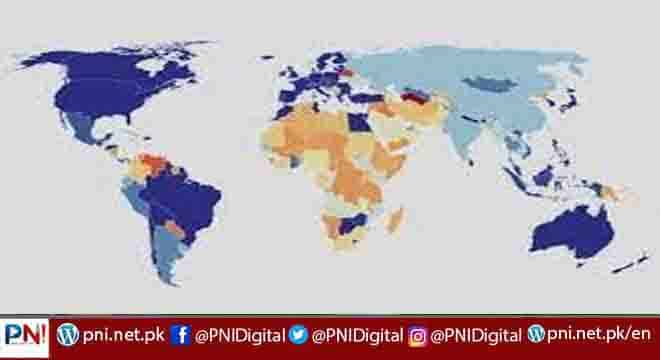Brussels, Dec 14 (AFP/APP):The European Commission on Tuesday presented plans to “reinforce” the 26-nation open-borders Schengen zone in response to the Covid pandemic, security threats and the movement of migrants.
“As with all successes, it needs to be reinforced to face many challenges,” Commission vice president Margaritis Schinas told journalists, describing the Schengen zone as the “crown jewel” of the EU.
“The refugee crisis of 2015, the spate of terrorists attacks on European soil and the global Covid-19 pandemic have all put the Schengen area under strain,” said Schinas.
Responding to the Covid crisis, the Commission wants the European Council to be able to quickly impose temporary travel restrictions on the zone’s external borders, in response to any public health threat.
The new rules would also allow a common response at the zone’s internal borders where most member states face a threat — whether a health or a security alert.
It also proposed a more structured system for member states to introduce border controls, to take into the account how they might effect neighbouring regions.
And rather than simply closing borders, the Commission suggested that member states look at less extreme measures, such as stepping up police checks.
The reforms also addressed the challenges posed by situations “where migrants are instrumentalised for political purposes”.
– ‘Last resort’ –
The most recent such crisis has been on Poland’s border with Belarus.
The EU, Britain, Canada and the United States have imposed sanctions, accusing Belarus of having weaponised migrants by pushing them to the border with Poland.
New measures proposed by the Commission include limiting the number of border crossing points and stepping up border surveillance.
“With our proposals today, we will ensure that border controls are introduced as a last resort,…” said home affairs commissioner Ylva Johansson.
She said that the reforms will give Schengen members the tools to address the challenges they face.
The Commissions’s proposals will go to the European Parliament and to member states for their response.
The Schengen zone comprises 26 countries: 22 EU member states together with Iceland, Liechtenstein, Norway and Switzerland.
But several member states have reintroduced some border checks in recent years in response to the 2015 migrant crisis and security alerts over feared terror attacks.
More recently, some member states closed their borders at various stages of the Covid pandemic.
France takes over the rotating six-monthly presidency of the European Union from January and President Emmanuel Macron has said that reforming the Schengen area is one of his priorities.
Follow the PNI Facebook page for the latest news and updates.









